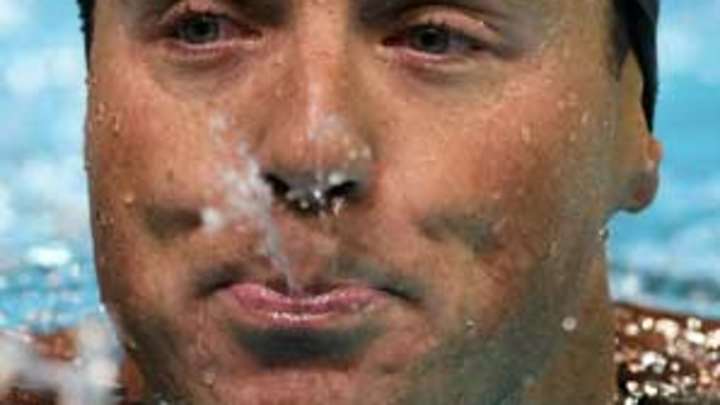Phelps owes a lot to his anchor man, Jason Lezak


The newspaper headline of 2008: Two Jews and a Black Man Help Phelps fulfill Olympic Dream.
Now if Al Campanis or Jimmy the Greek had been editing this daily bugle, we might have had a full-blown international incident on our hands. In fact, the headline appeared in the English-language version of Haaretz, an Israeli newspaper, after the United States 4x100 freestyle relay team had defeated France in Beijing.
If the description of the four swimmers seems cartoonishly broad, at least it has accuracy on its side: Garrett Weber-Gale and Jason Lezak are Jewish, and Cullen Jones is an African-American. Haaretz's point, you can assume, was that Michael Phelps, who won his second gold medal that morning en route to a record eight, had not won that medal by himself, a fact easily misplaced amid Michael Mania. The other three swimmers -- and all those who contributed to Phelps' three relay gold medals -- had something more than walk-on roles in The Michael Phelps Story. (After all, Dwight D. Eisenhower won many battles during World War II, but he wasn't exactly doing all of the fighting himself, was he?)
Forget for a moment the religious and ethic designations. The only race that counts in the Olympics is what happens in the pool, which brings us to Lezak, the self-coached, then 32-year-old who swam the anchor leg in the 4x100. Lezak will never get a tenth of the recognition of Phelps (instead of post-Beijing Guitar Hero commercials with Kobe Bryant and Alex Rodriguez, Lezak was honored with other Olympians from Southern California at an Anaheim Ducks game), but he was the swiftly moving force behind that relay gold, the most spectacular race of the year.
For those blinded by Phelps' dazzling eight-pack, we offer an abridged version of the most thrilling 46-plus seconds since the Detroit Lions began gathering footage for their 2008 highlight film:
Lezak, anchor of the Olympic 4x100 relay team since 2000, dove into the water about sixth-tenths of a second behind Alain Bernard, who had begun the competition as the world-record holder in the 100. As Lezak made the turn, he had drifted to about nine-tenths of a second back -- a body-length or so -- of the muscular Frenchman.
Unless Lezak had a submarine waiting to carry him the final 50 meters, it appeared that he was not going to overtake the best swimmer in the world at that distance.
Then, a minor miracle occurred. Lezak, who to that point had never won an individual Olympic medal, pulled within half a length with 15 meters to go, then caught Bernard at the wall, touching first by .08. Said German coach Orjan Madsen, "The whole thing was remarkable. It was one of those moments where you just sit back and say, 'Jesus.' If I hadn't seen it with my own eyes, I wouldn't have believed it." Lezak's split of 46.06 was the fastest ever recorded by about three-quarters of a second.
Lezak would return to The Michael Phelps Story, anchoring the 400-medley relay final to put the final punctuation mark on gold medal No. 8 -- a period that American swimming will never forget. Praise Phelps, sure, but don't forget Lezak and the rest of the foot soldiers. The King of Swimming performed in a pool, not a vacuum, as a cheeky Israeli newspaper reminded us all.
